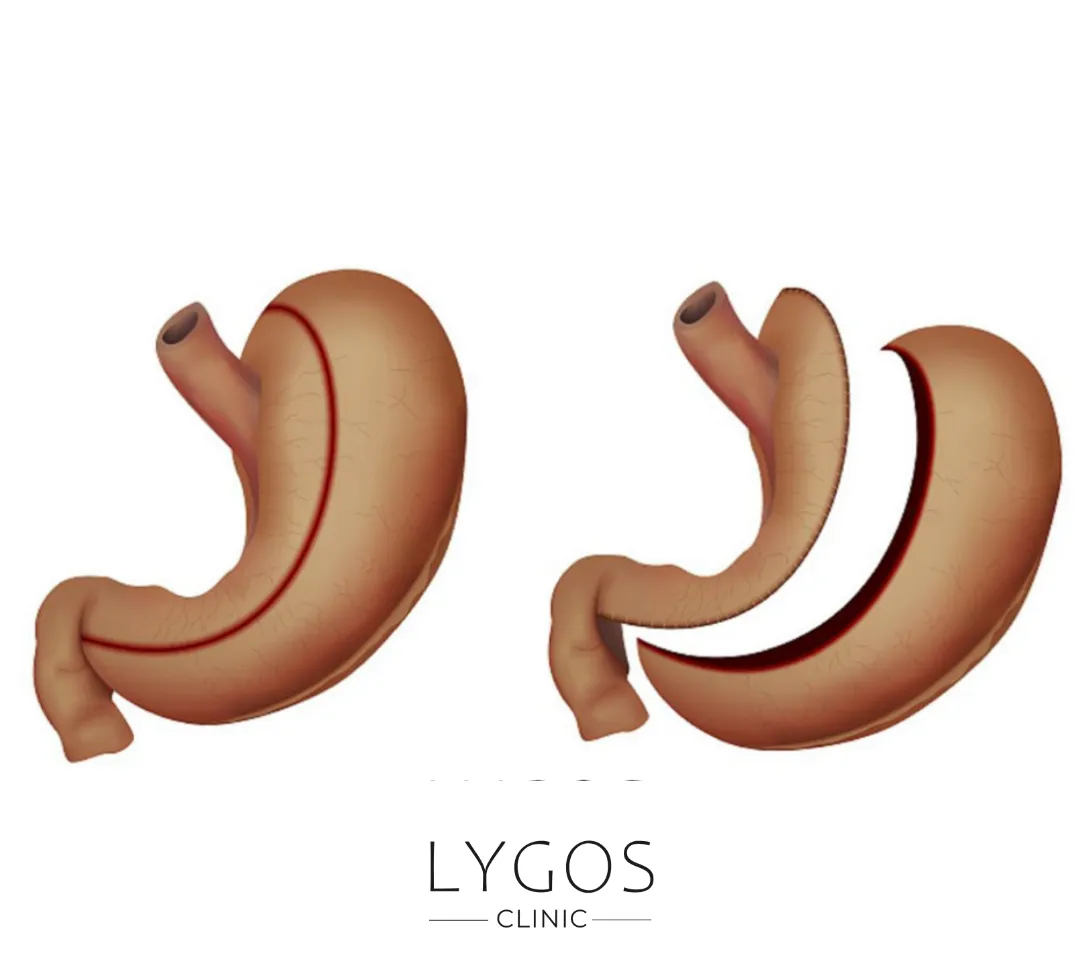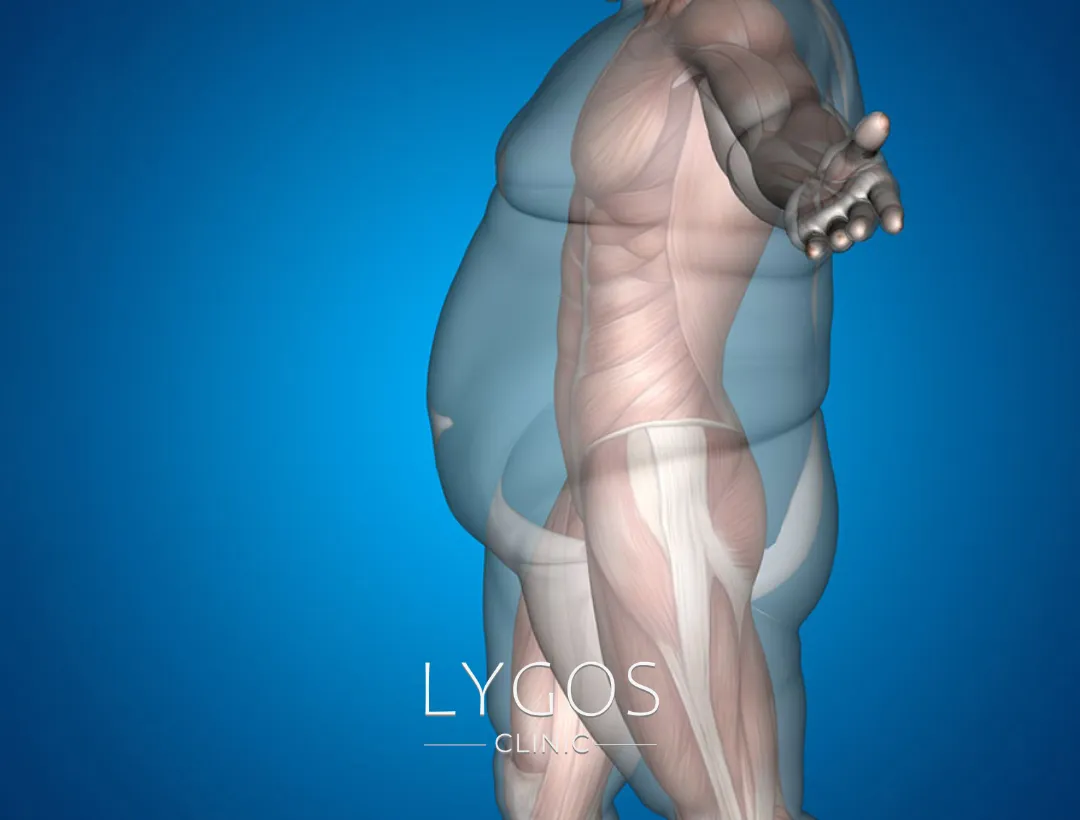Mini Gastric Bypass
Get Free Consultation
Chose Your Topic
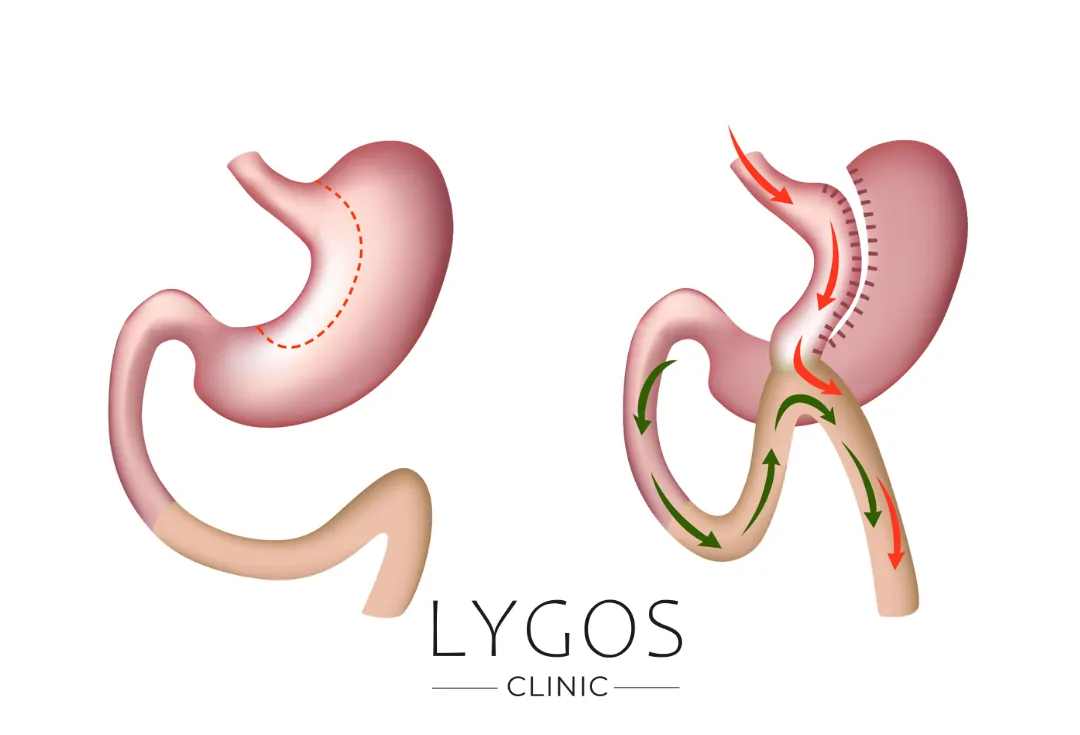
What is Gastric Bypass Surgery?
Mini Gastric Bypass surgery offers a fast and economical solution in the field of obesity surgery. It has high success rates especially in the control of chronic diseases such as Type 2 Diabetes, hypertension and hyperlipidemia. As the surgery is completed in a short time and is a minimally invasive method, it allows patients to return to their daily lives more quickly.
This surgical method offers great advantages not only in terms of physical health but also in improving quality of life. In addition to weight loss, postoperative patients experience significant improvement in many health problems associated with metabolic syndromes.
Who is Suitable for Mini Gastric Bypass Surgery?
Mini Gastric Bypass surgery is an ideal option for patients with a body mass index of 35 and above who also show signs of metabolic syndrome. This surgical intervention both accelerates weight loss and allows patients to play a more active role in their social lives.
However, the surgery should be performed by a specialist doctor and the best method for the patient should be determined. Mini Gastric Bypass is an ideal option, especially for patients looking for fast results and low risk of complications. Thanks to these features, it has proven itself as a frequently preferred method in bariatric surgery with successful results.
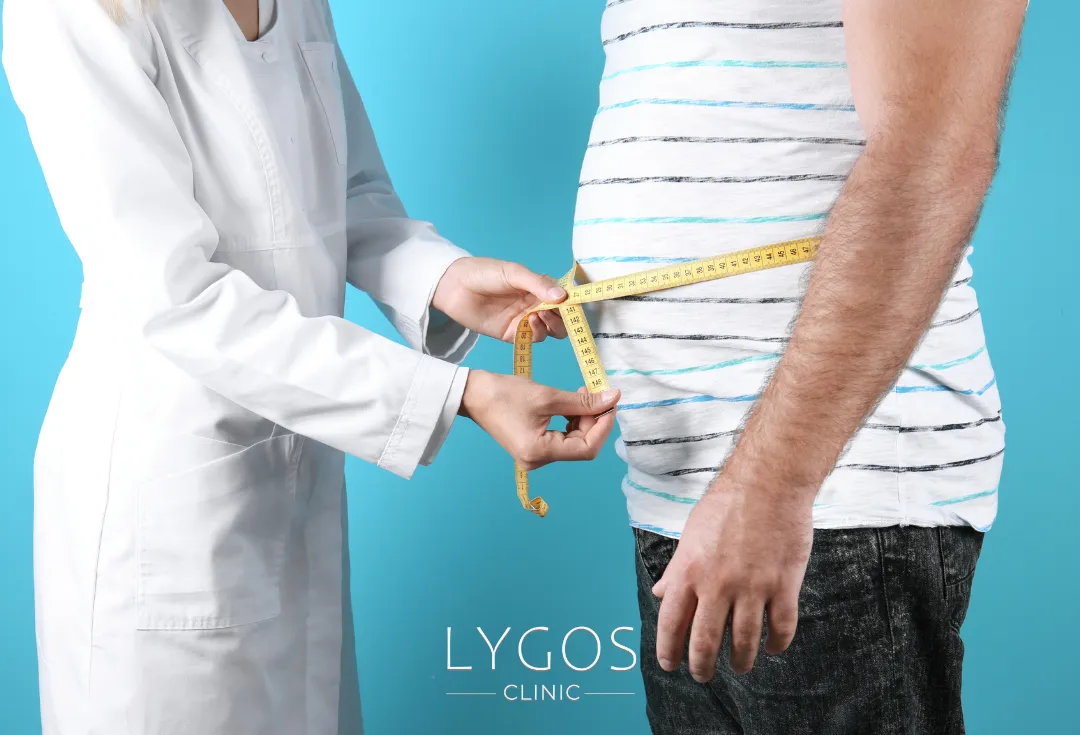

How is Mini Gastric Bypass Done?
Mini Gastric Bypass surgery is a procedure done both to reduce the volume of the stomach and to prevent the absorption of nutrients from the intestines. So, how is Mini Gastric Bypass surgery done? First, 5-6 small incisions of 1 cm are made in the abdomen and special instruments called trocars are inserted through these incisions.
Through the trocars, the camera and the thin and long surgical instruments required for the surgery are inserted into the abdomen. This placement of the camera and instruments allows the surgeon to have a clear view and work precisely during the operation.
Afterwards, a small stomach tube is created at the entrance to the stomach and this new small stomach is completely separated from the rest of the stomach. The main stomach that the patient will use will be this newly created small stomach. The separated large part of the stomach remains in the abdomen and continues to produce secretions. In the second stage of the operation, a connection is made between the small stomach and the small intestine.
This connection allows food to pass into the intestines. Approximately two meters at the beginning of the small intestine is bypassed and connected to the stomach near the middle of the small intestine. In this way, most of the food is excreted without being absorbed and weight loss is achieved. These steps allow Mini Gastric Bypass surgery to help patients lose weight while also improving conditions such as metabolic syndrome.
What are the Side Effects of Mini Gastric Bypass Surgery?
As with other procedures, Mini Gastric Bypass surgery can also have side effects. These effects may include both major and minor complications. Minor complications include hernias, ulcers and minor surgical wound infections at the surgical site. Such complications are usually milder and manageable. However, major complications tend to occur within the first 3 weeks after surgery and carry more serious risks.
Important complications include staple line leaks, pulmonary embolisms and strictures. Staple line leaks are leaks from the newly created part of the stomach and may require emergency intervention. Pulmonary embolism occurs when a blood clot travels to the lungs and is a life-threatening condition. Strictures mean a narrowing of the connection between the stomach and intestine and can make it difficult to pass food.
In such cases, it is extremely important to contact the doctor who performed the surgery immediately. Your doctor can evaluate the discomfort you are experiencing and plan the necessary interventions quickly. Therefore, it is vital that you contact your specialist if you notice any signs of complications in the postoperative period.


Mini Gastric Bypass Surgery Advantages
Mini Gastric Bypass surgery has more than one advantage. After this method, the absorption rate of nutrients is lower. In this way, the patient takes fewer calories and the weight loss process accelerates. Since part of the stomach is not completely removed during the operation, it offers the possibility to return to the original state if necessary. This is an important advantage in terms of reversibility of the procedure.
Mini Gastric Bypass surgery offers more permanent and clear solutions against Type 2 Diabetes and other similar diseases. This indicates that the surgery is effective not only for weight loss but also for metabolic syndrome and related diseases. It is technically easier to perform compared to the RNY Gastric Bypass operation, which makes the surgical process shorter and the risk of complications lower.
Another advantage of Mini Gastric Bypass surgery is that patients are less likely to regain weight after the procedure. In addition, there is no mandatory liquid nutrition period after the operation. This allows patients to return to their normal diet more quickly and comfortably in the postoperative period. Mini Gastric Bypass surgery offers both an effective and comfortable weight loss method.
Mini Gastric Bypass Surgery
Those who have Mini Gastric Bypass surgery live a healthier life. Preserving the natural structure of the digestive system also prevents possible problems. At the same time, patients who can perform basic functions comfortably start to live a healthy life. People who get rid of situations that put their health at risk, such as joint pain and difficulty breathing, realize that a different life awaits them.
Apart from the details above, the change experienced after surgery also affects those who have Mini Gastric Bypass surgery psychologically. Patients who have a fit appearance play a more active role in their social lives as they improve both health and aesthetics.


Nutrition After Mini Gastric Bypass Surgery
Nutrition after Mini Gastric Bypass surgery is very important for patients to get effective results in the long term. The requirements for regular nutrition are generally as follows:
In the first two weeks after surgery, patients are fed protein shakes, pureed soft foods, liquid diets such as water and soups. This is critical to prepare the stomach and digestive system for the healing process. At the end of the second week, patients transition to soft foods with a focus on protein and vegetables. Since the stomach is still sensitive during this period, the pureed consistency of the food facilitates digestion and contributes to the healing process.
At the end of the first month, patients can gradually introduce solid foods into the diet. At this stage, it is important to keep portions small and chew food thoroughly. The transition to a solid diet allows the patient's body to adapt to the new diet and helps them achieve their long-term weight loss goals. The nutrition plan after Mini Gastric Bypass surgery supports patients to lose weight in a healthy and balanced way and improve their overall health in the postoperative period.
Before and After Mini Gastric Bypass Surgery
The change that occurs before and after Mini Gastric Bypass surgery manifests itself in many ways. This procedure, which is one of the most ideal methods for the patient, generally does not cause health problems thanks to minimizing the loss of vitamins and minerals. It also preserves the basic functions of the body.
This allows the patient to continue his/her life smoothly before and after Mini Gastric Bypass surgery. People who have difficulty breathing and have a hard time with joint pain can get rid of their problems thanks to this method. The patient, who turns into a different person before and after Mini Gastric Bypass surgery, gains a fitter and healthier structure. In this way, it also improves psychologically.

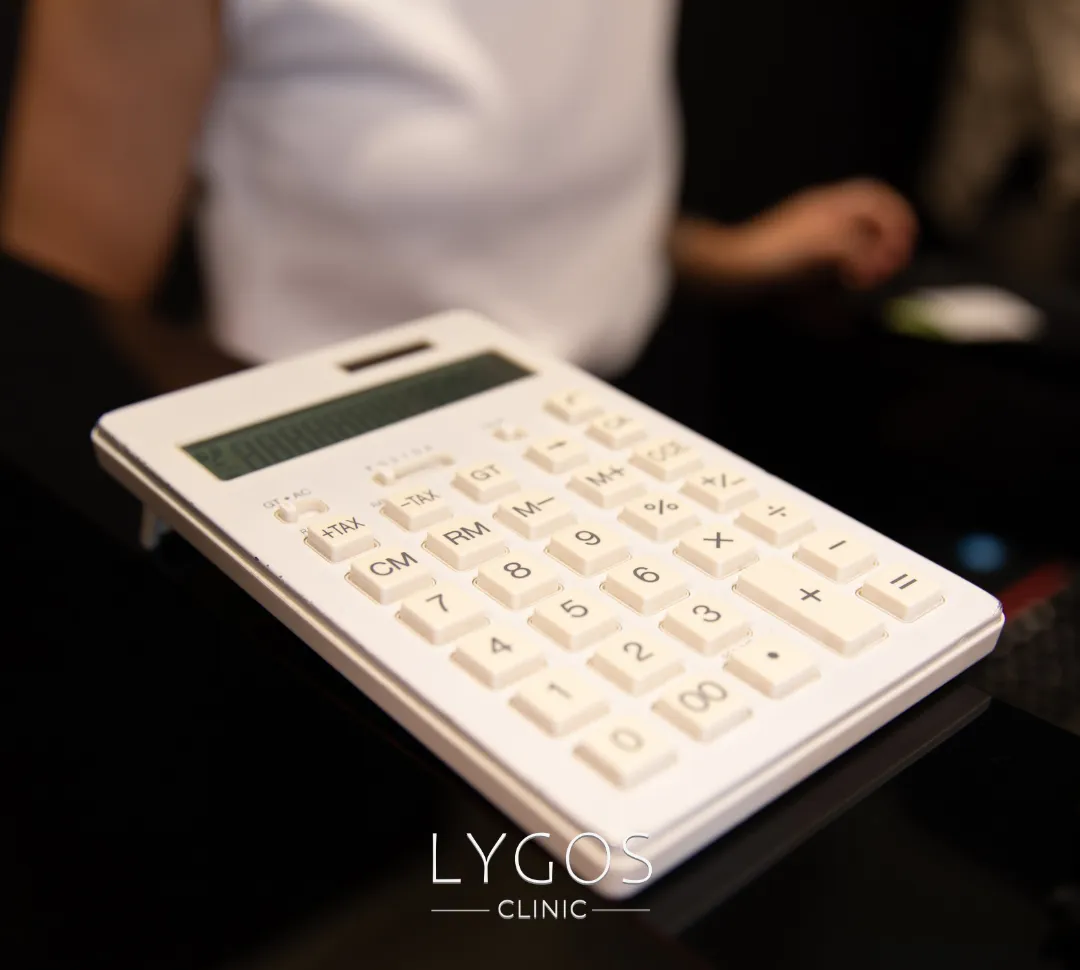
Mini Gastric Bypass Surgery Costs
Mini Gastric Bypass surgery costs vary according to the needs of the patient. If the patient’s problem is treated without surgery, the costs are determined accordingly. At the same time, the health problems the person is experiencing can also affect the costs. Mini Gastric Bypass surgery costs may increase if the patient undergoes surgery.
The cost of surgery performed by a specialist is higher. Therefore, it should be carefully decided which doctor will perform the procedure. Mini Gastric Bypass surgery costs also vary depending on the quality of the hospital. Costs are usually higher in a hospital with high quality and state-of-the-art equipment. However, it should not be forgotten that the success rate will also be reflected in the costs.
Therefore, Mini Gastric Bypass surgery costs can increase with the right choice of hospital and doctor. If you want to get more detailed information on the subject, you can contact Lygos Clinic's expert team.
Frequently Asked Questions About Mini Gastric Bypass Surgery
BLOG

Is Breathing Through the Mouth Harmful?
Chose Your Topic Is Breathing Through the Mouth Harmful? Breathing is one of the most fundamental needs of life. However,

Does Rice Water Make Hair Grow? | Benefits of Rice Water
Chose Your Topic Does Rice Water Make Hair Grow? Natural methods in hair care have become quite popular in recent

Breast Lump | Types: Benign, Malign and Causes | LYGOS 2025
Breast Lump While cancer stands out as one of the most common health problems today, early diagnosis rates are also

